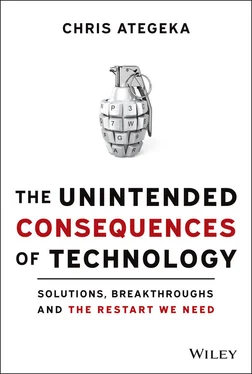The history of capitalism is diverse and has many debated roots. Scholars tend to cite that the first stage of capitalism came about during the 16th and the 17th centuries, when merchants gradually became more involved in the production of goods by supplying materials and paying wages. Traders from the towns started to move to the countryside, supplying the peasants and the craftsmen with money, convincing the peasants to produce for the international market. The merchants benefited greatly by making profits from the ownership and control of the means of production. This led to an increase in consumption of goods and services purchased in the market.
By the early 18th century, a complex colonial trade network was established over the North Atlantic Ocean. This network was partially the result of local economic conditions and dominant wind and sea current patterns.
Since dominant wind patterns highly constrained sailing ships, a trading system followed this pattern. Manufactured commodities were exported from Europe, some toward African colonial centers where they would be used to purchase slaves, and some toward the American colonies. This system also included a slave trade, mainly to Central and South American colonies (Brazil and the West Indies), where there was a high demand for labor in plantations and mines. Tropical commodities (e.g. sugar and molasses) produced in plantations flowed to the American colonies and Europe. North America also exported tobacco, furs, indigo (a dye), and lumber (for shipbuilding) to Europe. This trading system collapsed in the 19th century with the introduction of steamships, the end of slavery, and the independence of many of the colonies of the Americas. (Rodrigue, 2013).
In the 19th century, globalization, alongside transport and communication, innovations, and broader institutional changes, allowed worldwide commodities such as cotton, wheat, sugar, tea, butter, silk, flax, and rice to flow. The economic and social conditions were in place for the industrial revolution to explode onto the world's economies. Powered by a number of new inventions, the primitive factory system was transformed, as machine power drove productivity to unprecedented levels. There was a boom in factory production, with all manner of buildings being converted into factories and the majority of waged labor taking place within factory buildings.
It should be said that the industrial revolution saw machines replace many workers and transform the way people worked, lived, and consumed goods. Over time, this continuously convinced us that a person's well-being and happiness depend fundamentally on obtaining goods and material possessions, also known as consumerism .
American capitalism, combined with consumerism, really hit in the roaring 1920s, which was a decade of huge prosperity fueled by the advancements of two automobile titans in the 1910s and 1920s. Ford's and GM's inventions of the automobile and introduction of automated assembly lines transformed American manufacturing into a mass-production machine.
Then came the Great Depression, which was considered the worst economic downturn in the history of the industrialized world, lasting for a full decade. By 1933, the Great Depression reached its lowest point. Some 15 million Americans were unemployed, the stock market had lost almost 90% of its value, and nearly half the country's banks had failed (Ali, 2016; more about capitalism bursts and booms later).
Capitalism survived the Great Depression era, the world got back on its feet, and, when the 1950s hit, there was a second surge of extreme American consumerism. The overall economy grew by 37% during this decade ( History.com, 2020). WWII was over and even the government told citizens that they needed to consume more to be “patriotic citizens.” New industries grew out of the huge boom in consumer spending: TV, plastics, jet engines, entertainment media, mass housing, and more. Production of goods like food, cars, clothing, electronics, appliances, and pharmaceuticals all accelerated due to factory-driven mass production.
Fast-forward to the 21st century, with exponential advancements in technology and easy access to information. Pressures of consumerism are everywhere—on our phones, social media platforms, websites, TV shows, movies, billboards, and retail checkouts. We've gone from shopping for necessity, utility, and comfort to overpurchasing for validation and stress relief.
Over the past 100 years, we've grown to believe that having more stuff is tantamount to happiness, a never-ending comparison of one's inside with someone else's outside. What we own and purchase defines our current social norms of success. The problem is, all this overconsumption is not making us happier. In fact, it's making us, and our planet, sicker and more unhappy than ever. The forces of capitalism and consumerism have us all addicted to mass consumption—on steroids.
If you are not in the top 1% (folks who own the majority of the world's wealth), it's very easy to see how capitalism is not working for you. Many want it replaced or at least reconfigured to a hybrid system that works for more people. However, there are so many scars on the U.S. psyche from the communist regimes and conflicts of the USSR that proposing anything new or different from capitalism instantaneously makes you a communist or a socialist, which is considered a slur.
However, we do need to be thinking about alternative systems. Capitalism is working too well for a very few at the top, not so well for the rest of the world, and increasingly threatening our planet and future.
Taking a closer look at a hybrid of capitalism and socialism as an example, at the time of this writing, this form of government appears to be working well in countries like Germany and the Scandinavian subregion of Northern Europe that includes Denmark, Sweden, and Norway. In addition to being economically strong and stable, these countries rank very high on the World Happiness Index, an annual publication of the United Nations Sustainable Development Solutions Network. The index is a ranking of national happiness based on the respondents' ratings of their own lives, which correlates with various other life factors, many not related to consumption, such as having someone to count on, having a sense of freedom to make key life decisions, generosity, trust, and purpose (World Happiness Report, March 2020).
However, in the United States, when politicians like Vermont Senator Bernie Sanders propose the distribution of wealth equally among the people, free provision of government social services like schools, healthcare to its citizens, and public ownership of most land, they are quickly demonized as socialists by a subset of the country's population. This subset has been taught that the capitalist ethos of competition and acquisitiveness is simply “human nature,” and is the best and only way to govern. They do not seem to realize that capitalism is a socially constructed way of life that has been deliberately and systematically fostered by centuries of the market economy.
Capitalism has some merits, which is why it has survived and thrived in the majority of the world economies. The following sections touch on a few advantages of this economic system.
Economic Freedom Helps Political Freedom
When governments own the means of production and set prices, this invariably leads to a powerful state and creates a large bureaucracy, which may extend into other areas of life.
Firms in a capitalist-based society face incentives to be efficient and produce goods that are in demand. These incentives create pressures to cut costs and avoid waste.
Читать дальше












